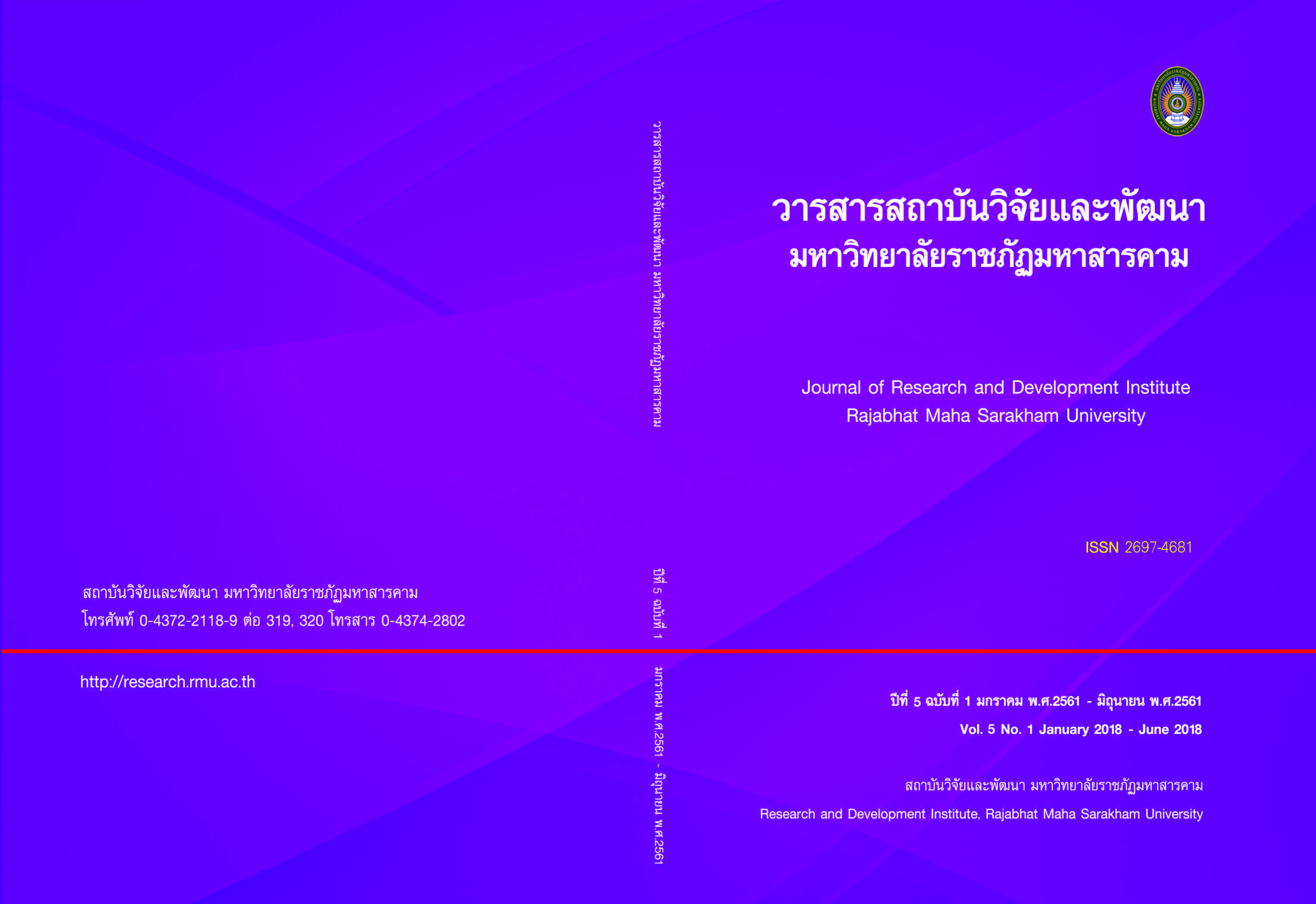The application of theory in international investment
Keywords:
Application, Foreign Investment Theory, AdvantageAbstract
International investment is a part of driving the global economy. At present,
many businesses and entrepreneurs are investing in doing business abroad. There are
many factors that make the decision to invest in that country. The study of foreign
investment theory. It should also learn about foreign investment theory as it affects
economic policy. Investments in both government and private sectors. The result of
this study is the concept of international investment theory. Learn about education.
Foreign Investment research case study of foreign invested companies. Then applied to
the theory of international investment.
References
Business Bangkok Newspaper. (2016). Red Carabao invade to Export to Europe. [Online]https://www.bangkokbiznews.com/news/detail/728221
Damrongsak Chaisanit and Korkietti Wiriyakitphattana. (2000). International Trade.Bangkok : Wung-aksorn publishing house.
David Ricardo. (1911). The Principle of Political Economy and Taxation. New York :Dutton and Company, Inc.
Dunning, J.H. (1977). Trade. Location of Economics Activity and Multinational Enterprise:A Search for an Eclectic Approach. In the International allocation of economic
activity: Proceedings of a Nobel Symposium Held at Stockholm,
Dunning, J.H. (1980). “Toward an Eclectic Theory of International Production: SomeEmpirical Tests”. Journal of International Business Studies, Vol. 11 pp. 9-31.
Dunning, J.H. (1981). International Production and the Multinational Enterprise.London, Allen & Urwin.
Dunning, J.H. (1988). Explaining International Production. London: Allen & Urwin.
Dunning, J.H. (1996). Re-evaluating the Benefits of FDI. In Companies without Borders –Transnational Corporations in 1990s. London: International Thomas Press.
Dunning, J.H. (2001). The Eclectic (OLI) Paradigm of International Production: Past,Present and Future. International Journal of the Economics of Business, Vol. 8,pp. 173-190.
Dunning, J.H. and S.M, Lundan. (2008). “Institutions and the OLI Paradigm of theMultinational Enterprise”. Asia Pacific Journal of Management, Vol. 25, pp. 573-593.
Michael E. Porter (1990), Competitive Advantage. New York. USA. Free Press.
Rattana Saikhanit and Phudthakarl Ratchathorn. (2006). Economics of InternationalBusiness Management. Bangkok : Chulalongkorn University
Research Institute Foundation, Fiscal Economic Policy. (2018). Thailand's Foreign Investment : Case study of Japanese and China. [Online]
https://www.fpri.or.th/wp/?p=1473#.Wv2QozSFPIU
Sasatra Sudsawasd and Prasopchoke Mongsawad. (2017). “On the Rationale of Thai Entrepreneur’s Investment Decision in the Border Provinces of Thailand and in
ASEAN Countries”. Thammasat Economic Journal. 35 (3) : December 2017
Soawanee Keawjulakarn. (2012). International investment. [Online]https://www.gotoknow.org/posts/37750
Thanapon Janphen. (2016). Promote Guidelines for Funding by Crowdfunding. Bangkok : Fiscal Policy Office.
Wannarat Wattananimitkul. (1999). International Business Strategy. Faculty of BusinessAdministration ; International Business, Stamford University
Yoawares Thubphan. (2014). International Trade Economics : Theory and Policy. 3rd ed.Bangkok : Thammasat University
Downloads
Published
How to Cite
Issue
Section
License
Articles that are published are copyrighted by the authors of the articles







